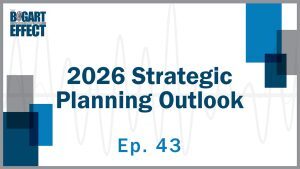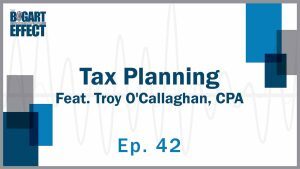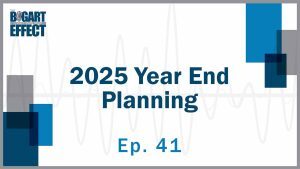Unlock Your Golden Years:
Strategies for Retiring at 55
Key Takeaways for Achieving Early Retirement at 55
- Early Retirement Benefits: Enjoy career flexibility, more time with family, and better health outcomes by retiring early.
- Pay Off Debt: Eliminate debt to maximize retirement savings and reduce financial burdens.
- Increase Monthly Contributions: Boost your retirement plan contributions to ensure sufficient funds for a 30+ year retirement.
- Tighten Your Budget: Adjust spending habits to increase investment contributions, focusing on long-term financial goals.
- Invest Bonus Money: Allocate any bonus money directly into retirement savings to enhance your financial growth.
- Be Financially Aggressive: Adopt aggressive investment strategies to compensate for shorter accumulation periods.
- Consult a Wealth Management Professional: Seek professional advice to create a realistic and effective retirement plan.
Embarking on Your Journey: How to Retire at 55

Retiring at age 55 might sound like an unattainable dream, but it’s entirely possible if you do an adequate job of planning. Developing an early retirement strategy ensures you can start the next stage of life while you still have the energy and mobility to enjoy it, without money issues popping up as you age.
Life is getting more expensive, however, which can create anxiety as you consider retirement. You don’t know how the future will look, but you can take financial steps today to put you and your family in a better position for the future.
You can incorporate multiple strategies into your overall early retirement plan to give yourself the best chance of success. This guide examines how early retirement benefits you and provides information on how to retire at 55.
The Benefits of Early Retirement
The most obvious benefit of early retirement is that you won’t have to work anymore, but other positives accompany your newfound freedom. You’ve worked hard to reach this stage, and taking advantage of everything you’ve put into your career offers significant lifestyle changes. Some of the main pros include the following:
Career Flexibility
Many American workers constantly fear that budget cuts and downsizing might eliminate their current positions. This scenario could be a nightmare if you don’t have an aggressive retirement strategy because losing your job at 55 and finding another one to get you through to 65 could prove challenging.
Developing an early retirement plan gives you the flexibility to walk away on your terms, reducing stress as you get into your 50s.
More Time With Family
Reaching the top of your profession takes significant time and energy, which might force you to miss some important moments with your family. Retiring at 55 gives you time to make that up and could give you additional time with your grandkids through some of their most vital developmental years.
Taking vacations and attending birthdays and other special events is also easier without work getting in the way.
Better Health Outcomes
Work-related stress can hinder your health, as research by Finland’s National Institute for Health and Welfare reports that heavy stress can shorten an individual’s life expectancy by 2.8 years. Stress can also cause chronic headaches, respiratory problems, cardiovascular issues, and nervous system reactions, creating significant health problems in your later years.
Getting away from the office at an earlier age could reduce your stress levels, leading to better health outcomes as you get older.
Consider these benefits to help keep things in perspective as you look at retirement strategies. Understanding how much retiring at 55 could improve your life makes it easier to stay on track while following your plan.
Six Tips to Boost Your Retirement Savings by Age 55
Early retirement won’t happen without effort on your part, so you’ll need to develop a strategy to get yourself there. The key is saving enough money through your investments to match your desired lifestyle. Some tips you can incorporate into your retirement strategies include the following:
1. Pay Off Your Debt
Entering retirement with significant debt is a nonstarter because much of your retirement income would go toward payments and interest. Debt also makes saving for retirement more challenging for the same reasons.
Your first goal should be to pay off your existing debt because that allows you to maximize your retirement savings.
2. Increase Monthly Contributions
You’ll probably have to increase your monthly retirement plan contributions if you wish to retire early. That doesn’t necessarily mean you have to double your annual savings, but contributing as much as you possibly can every month maximizes your growth potential by giving your investments more time to appreciate.
Remember that you’re putting money away to support your lifestyle for potentially 30 or more years, so you will need a significant amount.
3. Tighten Your Budget
Increasing your investment contributions could force you to tighten your budget. You can choose to spend less now and invest the savings or change your retirement goals if you can’t begin spending less today. The choice ultimately depends on how you wish to spend your retirement and how flexible you are with those plans.
4. Invest Bonus Money
One way to boost your retirement savings is to invest any bonus money you receive as part of your employment package. This cash is outside your regular salary anyway, so automatically investing it won’t force you to adjust your current budget much. This bonus money can add up significantly if you consistently receive it from your employer.
5. Be Financially Aggressive
Developing aggressive investment strategies could become a necessity if you wish to retire at 55. Early retirement means you have about 10 fewer years of appreciation to rely on, so you’ll need to find options with significant growth potential.
This strategy could take you out of your comfort zone regarding risk tolerance, though, so you’ll have to consider the pros and cons before you begin.
6. Use a Wealth Management Professional
Utilizing the services of a wealth management professional ensures your goals are realistic and can help you develop a roadmap for reaching them. These professionals understand the challenges you’ll encounter as you attempt to retire at 55 and can guide you as you determine if this goal is attainable.
They can also help you understand how much money you’ll need in retirement so there aren’t any surprises when you get there.
These tips can point you in the right direction as you plan for early retirement. Gathering as much information as possible can assist you in developing a plan to meet your long-term financial goals.
Your Retirement Planning Expert
You won’t have access to your individual retirement account (IRA) before age 59.5 without paying a penalty, so you might have to go outside IRA options for the first few years if you retire at 55. You’ll also have healthcare and tax considerations to keep in mind if you step away from your career early.
Your wealth management professional can put you on the right track as you learn how much money you’ll need and develop ways to save enough beforehand.
Bogart Wealth offers wealth management, financial planning, and retirement planning solutions in Northern Virginia and Houston, Texas. We can let you know how to retire at 55 and make recommendations to help you reach your financial goals. Contact Bogart Wealth to speak with our experts about your retirement goals.



